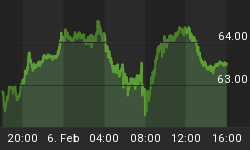Ukraine doesn't need Russia to take it down-Kiev is doing fine destroying itself, most recently with a new tax code that doubles taxes for private gas producers and promises to irreparably cripple new investment in the energy sector at a time when reform and outside investment were the country's only hope.
Ukrainian President Petro Poroshenko on August 1 signed off on a new tax code that effectively doubles the tax private gas producers in Ukraine will have to pay, calling into question any new investment, as well as commitment from key producers already operating in the country.
The stated goal of the new tax code-a legislative package embraced by the parliament on July 31 with more than 300 votes--is to raise $1 billion, of which $791 million would go to fund the war effort in eastern Ukraine.
According to the Kyiv Post and Ukrainian law firms, the new code will remain in force until the end of 2014 during which time gas drillers will be required to pay 55 percent of their subsoil revenue for extracting under five kilometers. This is up from 28 percent--so it's a significant hit for producers. Additionally, for any extraction beyond five kilometers, the tax will be 28 percent--up from 15 percent.
The only saving grace here is that this wasn't the worst possible scenario: An early version of the bill called for a 70 percent tax on gas extraction.
Ukraine may have some of the most attractive gas prices in the world-the only thing that could have possibly lured investors there-but the new tax law renders this irrelevant, especially considering that in European countries, the tax does not exceed 20 percent.
The oil sector will also be hit with the new tax code, which increases rates to 45 percent for drilling under five kilometers-up from 39 percent. But it is the gas tax hike that will really cripple potential investment in Ukraine.
Private gas producers lobbied energetically against the new tax laws, arguing that it will crush investment and force investors to re-think their commitment to Ukraine. They also argue that it benefits some members of the political-business elite, and has nothing at all to do with funding the war effort in the east. Instead, it is the next phase in the battle among energy oligarchs to secure their interests in the dynamic political arena shaping up after the fall of President Viktor Yanukovych.
In an open letter sent to Parliament on July 29, a group of private producers stated: "The draft law may lead to a rapid increase in the tax burden on private gas producing companies, a significant decrease in project cost effectiveness in general (up to closing down due to unprofitability) and a general decrease in attractiveness of the Ukrainian market for foreign investors."
Speaking to Oilprice.com from Kiev, Robert Bensh-a veteran Ukraine energy executive and partner and managing director of Pelicourt LLC, the majority shareholder in Ukraine's third-largest gas producer, Cub Energy-was highly critical of the new tax law and fearful of what it means for Ukraine's future at such a critical juncture its energy dynamics.
"This law is dangerous to the long-term security of Ukraine. It adds little to the budget and discourages drilling and investment in the upstream oil and gas sector, as well as calls into question the ability to invest in Ukraine at all," said Bensh, who has been one of the most visible lobbying forces against the law.
"No one will invest in a country that arbitrarily punishes investors who are creating value by increasing reserves and production, or who are paying taxes and employing hundreds of thousands of people. No one will invest in an industry with the risk that taxes will be double or triple within a few months," he said.
Bensh called the bill "highly political" and pointed to its two key beneficiaries: energy magnates Rinat Akhmetov and Ihor Kolomoyski, who "either own oil or mining assets that were taxed immaterially and punitively taxed gas producers."
According to OP Tactical's intelligence wing, the tax code was clearly maneuvered by Akhmetov and Kolomoyski and should serve as the first sign that key reforms of the energy sector will be challenged at every step to ensure that these interests are secured at the expense of the state.
"The failure of Ukraine to develop gas supplies, either due to years of corruption and or failure to attract outside investment into the upstream sector, is a material factor in Ukraine's current economic crisis and issues with Russia. Ukraine has always sought the easy solution. This tax and the failure to see the strategic impact upon the country is yet again another example," Bensh said.
By. James Stafford of Oilprice.com















